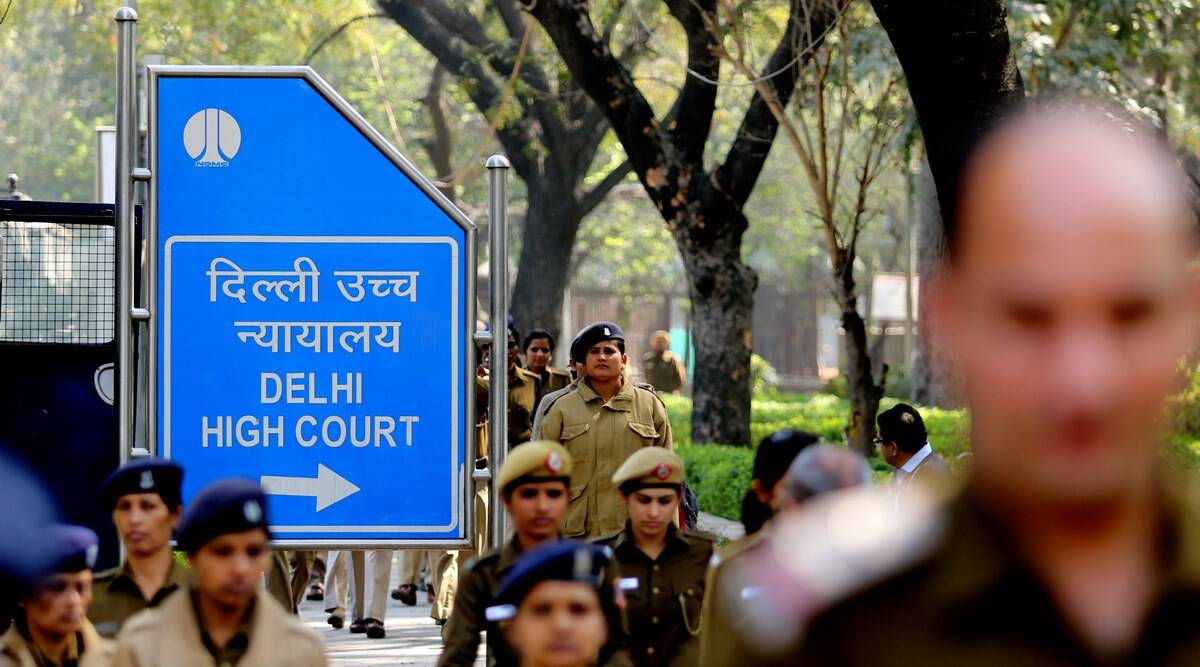 Delhi High Court (File)
Delhi High Court (File)The Delhi High Court on Monday acquitted three men sentenced to life for the 2009 murder of a 21-year-old Delhi University student, whose body was found wrapped in a bag at the house of one of them.
According to the prosecution, Nitika Singh, a BA final-year student of Aditi College, was found dead in West Delhi’s Mundka village. When Singh did not return home from college, her family filed a missing person’s report. On September 15, 2009, her father got a telephone call from an unknown number saying that one of the three men, Yashu, had shot his daughter dead and disposed of her body. The caller identified himself as Vikram from Kurukshetra. Police searched the house of Yashu, who lived in the same neighbourhood as Singh, and found her body wrapped in a black polythene bag and with a bullet injury on her temple.
A trial court on July 30, 2020, convicted the three men for offences punishable under sections 302 (murder)/120B (criminal conspiracy) of the Indian Penal Code and additionally convicted one of them under the Arms Act. The court sentenced the trio to life imprisonment and fined them Rs 20,000 on August 11, 2020.
A bench of Justices Mukta Gupta and Anish Dayal was of the view that the prosecution had not been able to prove the guilt of the men “beyond reasonable doubt”.
Singh’s father testified that he saw Yashu and Sunil standing in front of a shop as he closed the door behind his daughter who left for college at 9am on September 14, 2009, and that the duo were later joined by Vineet.
The judges, however, held this was “not credible or complete to serve as last-seen testimony”, saying there was no evidence or witness statement that the father had seen Singh in the company of any of the three men that morning, or that they had pursued her after she left home, or even showed any body language that they would do so.
“It is axiomatic that last-seen evidence must relate to the combination of seeing the victim with the accused departing from the site of the place of incidence in a time span which is proximate to the commission of the crime,” the court said.
According to the court, the prosecution had not examined anybody from Singh’s college to get information about her entry into the college, her presence there, her attendance in any particular class, her having met any friends in the college and her exit from there.
“The prosecution has been unable to furnish any evidence regarding the facts and circumstances relating to the movement of the deceased from the point when she left her home at 9am till her dead body was recovered at the neighboring premises. There is nothing to implicate the appellants regarding their presence with the deceased in this time span. No call records have been presented by the prosecution nor any other corroborative evidence,” the court observed.
The prosecution had primarily argued that Singh’s body was discovered at Yashu’s house and that a part of it was rented out to Sunil, the co-accused. The court, however, said the prosecution had not proved that the premises were actually owned by Yashu or Sunil.
The court also observed that the identity of the caller from Kurukshetra, Haryana, had not been investigated. Also, according to the court, the father’s testimony did not state that the caller had indicated that the body had been disposed of at Yashu’s house.
“Even though this may seem like a minor discrepancy, it is important to take it into account considering that there is no other evidence to corroborate the existence of the call to PW-3 (father) or the identity or location of the caller,” the court said.
The court held there was no proof for the motive of the crime and the foundational facts. The father’s statement that there was a family dispute with one of the men over property, without any corroboration, cannot be considered as credible, it further said. The court also said the statement did not suggest the dispute had been simmering and had precipitated a trigger for the murder.
Setting aside the trial court’s order, the high court held, “This court finds that there is no evidence available on record on the basis of which the appellants can be proven guilty beyond reasonable doubt for the murder of the deceased and, therefore, the conviction and the order on sentence thereon passed by the learned trial court cannot be sustained and is set aside”.
The court directed that three men be released from from jail forthwith.